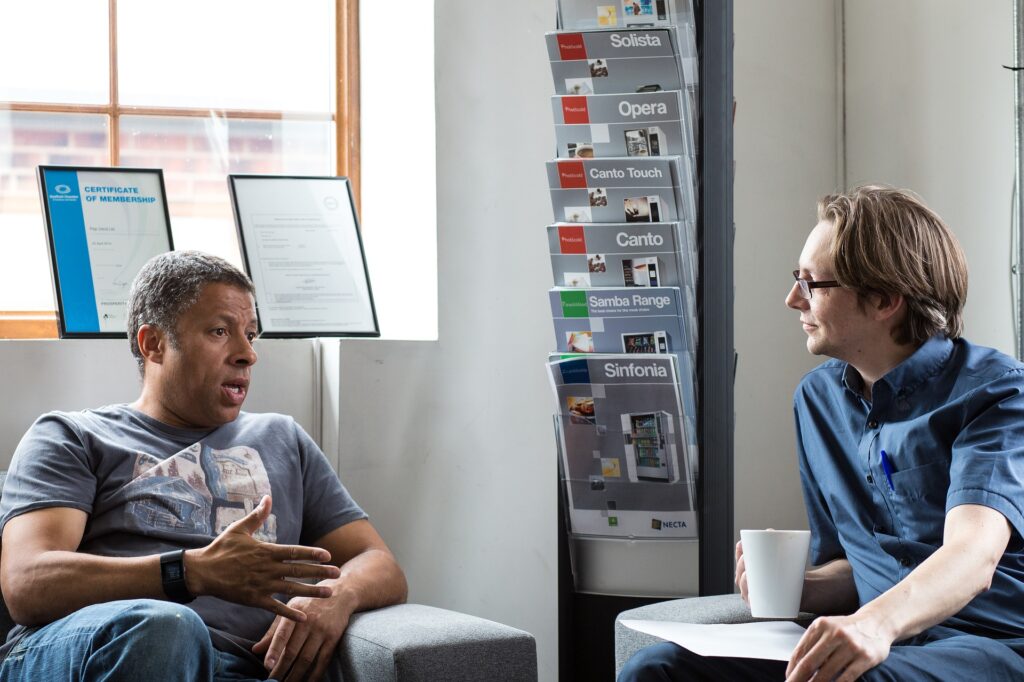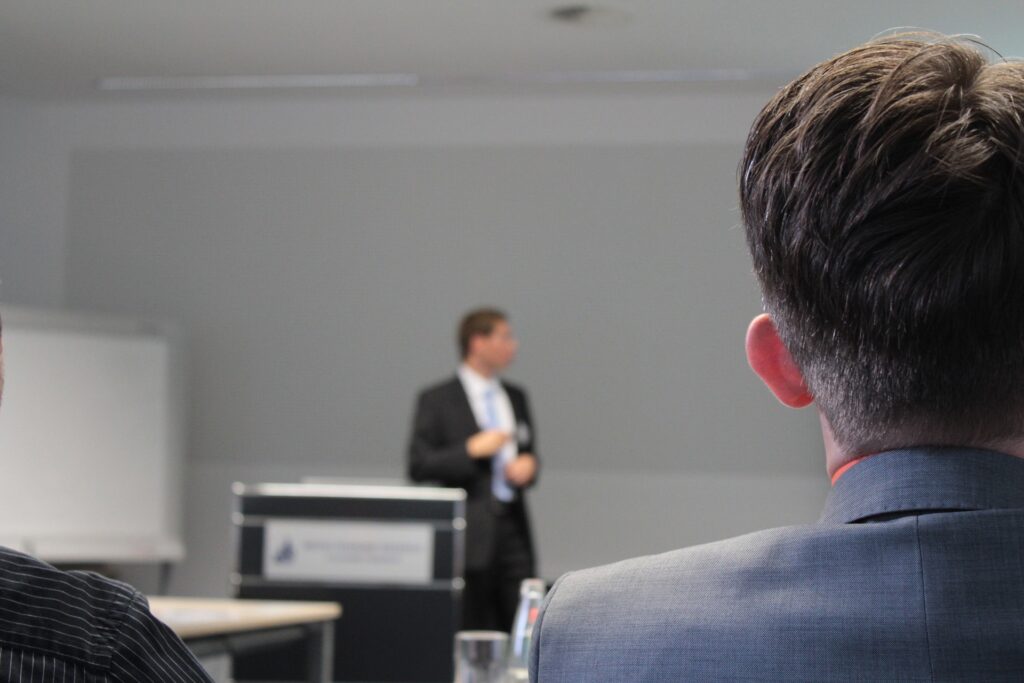In this article we are going to talk about the How to become an active listener? A key part of any healthy communication is listening. Listening is an important part because it helps you really understand what the other person is trying to convey and it also helps you come up with an appropriate response. Listening is categorized into two types, active listening and passive listening. Active listening is when you make a conscious and a genuine effort to hear and understand what the other person is trying to convey so that you get the complete message. Passive listening is when one listens without the intention of responding or even trying to pay minimal attention to the speaker itself. An accurate example of passive listening would be the classic textbook conversations between an angry wife and her clueless husband.
Active listening serves the purpose of earning the trust of the speaker and makes them feel heard, understood and empathized.
Active listening is very important because paying attention to the speaker completely will help you in a lot of ways. For instance, paying complete attention to your superiors at work will help you understand the job better, make it easier and you more efficient and you can deliver what the management expects from you. It is a proven fact that workers who listen better tend to work well in team based assignments, group projects etc.
This process of listening involves a cognitive and a complex behavioral process. According to oxford dictionary, listening is also classified into 4 types based on the content being delivered, or heard. They are appreciative, empathic, comprehensive and critical. Active listening will also help you to retain a lot of information. Active listening will also help you improve your understanding of the language and help you with your pronunciation. One needs to understand the difference between hearing and listening. Hearing is merely a physical ability whereas listening is a skill not many people possess. In simpler words, listening is how one individual understands the other, understands his emotion, gets the essence of what he is trying to communicate.
How to become an active listener?
It must be clear to all of us by now on how important listening is, yet google has almost four times as many matches for “how to speak” than “how to listen”. Yes, it is pretty ironic that despite knowing the importance of listening, people are inclined to think that effective speaking is essential to attract the ears of the audience.
Not everyone knows how to listen intuitively. Here are some simple ways which will help you become an active listener:
1. Display proper nonverbal cues

Maintaining eye contact is very important for active listening. Looking at the speaker in the eye, nodding in agreement, and occasionally saying yes or okay will greatly help in increasing your concentration towards the speaker. It is also not very polite to interrupt the speaker. Always wait till the end of the talk for any doubts or questions and only when the time is right or the speaker asks you for questions or doubts should you ask them. Another important thing is, try and sit as still as possible through the course of the meeting or the talk because unnecessary movements can cause the speaker to get distracted and might miss out on some key points.
Sitting still is also a key indication to the speaker that he has your full attention which will also interest the speaker to talk more.most importantly it is not always necessary to say yes or okay, a simple nod in agreement will suffice. Avoid fidgeting with anything while listening to a speaker. Yes, not even your fidget spinner.
Paying keen attention to the speaker will also prevent your brain from wondering whether Rachel and Ross were actually on a break.
Click Here: Best Personality Development Blogs To Follow
2. Drilling down to details

Active listening not only means sitting in one place in total agreement with the speaker. You are free to keep the talk as interactive as possible. Cross questioning and asking a lot of details about the topic will always help in understanding the topics. Every minute of the talk will be informative and interesting if you drill down to the minute details of the topic which is being conversed. Asking questions like “how will this work?” “How did you come up with this conclusion?” will help you in having a good command over the topic. Keep it in mind to summarize the topic before asking the doubts so that you make sure you have not missed anything. Have encouraging feedback towards the speaker so that he/she feels free to clarify or correct you.
Read Also: Why We Should Plan For Our Future?
3. Do not digress from the topic

While in the middle of a conversation, make sure that you do not digress from the whole topic. It is very rude and acts as a clear sign of disinterest when you ask something which is not related to the conversation in any way. DO NOT be mentally prepared to rebuttal even before the start of the talk. It is always best to start with an open mind as this is not a debate. Be open to new ideas and views and learn to respect the stance of the other person even if you do not agree with their stance. Another important thing for active listening is that do not be distracted by environmental factors i.e. by the things happening around you.
Read Also: How to Improve Your Thinking Capacity?
4. Do not give unsolicited replies

When asked a question in the middle of the talk, give answers straight to the point, try not to beat around the bush and answer unsolicitedly. Honouring the speaker is very important because you always get what you give, reply to the speaker in a respectful manner even if the question asked is pointed directly at you. Always start off by paraphrasing the speaker which will show to the speaker that you have been paying attention towards them. Another very important factor is to try and avoid racist or prejudiced questions. Try to keep it as neutral and non racist as possible. Sound polite and humble while asking questions because it will interest the speaker to answer with more patience.
Read Also: Importance of Time Management Skills
5. Watch closely

Active listening not only means to listen, but also to watch and observe carefully. In many talks or meetings, important points and key instructions are not only provided by words but also by using the help of teaching aids, body language, hand and eye movements etc. these non verbal behaviour are a key to answer many questions that may arise and only those listen actively can gain the edge over those who do not. For example, when attending a talk about self help, mere listening will not help. You have to even observe the speaker to pick up important body language, to pick up his calm and composure and to inculcate them for an effective change.
Click Here: Best Interesting Articles
6. Ask questions

A question popping is always a positive sign which proves that you have been paying attention towards the question. What’s important here is how you ask the questions; the way of framing the questions becomes very important. Make sure to ask open-ended questions. Open ended questions means that the questions require interaction while answering. Avoid asking yes or no type of questions, true or false type of questions. Also, avoid asking the type of questions which tend to shut down the conversation. The main motto of active listening is making it as interactive as possible for maximum understanding.
Read Also: Why We Should Develop Good Habits?
7. Don’t worry much on making notes

Notes can be summarized at the end of the talk or the presentation as well, but if you insist on making notes do it like the flash. It is highly likely that you will tend to miss out on a lot of points while writing and it defeats the whole purpose of active listening. Memos of the entire talk will be more than enough to remember what the speaker spoke about if you would have listened actively. If you still think that making memos of the talk is difficult, you can get a copy of the presentations that was presented or even borrow the notes that were made by your fellow peers.
Read Also: How To Improve Your Appearance?
8. Role play the points told in your head

Along with active listening it is also important to remember what you’ve heard for a long time. One of the most effective ways to do it is forming situations inside your head on where you will use them .You can build up conversations where you would use the delivered points, and try to reciprocate them to the maximum extent possible. This will increase the chances of you remembering the points for a much longer point of time. There are effective ways which helps the listeners to remember the key notes and points.
The motto of attending any talk of a meeting should not be to sit there clueless, nod in complete agreement without a tiny hint of what’s happening within a 5 mile radius of your thought bubble and give a courteous applause in the end. The objective of attending any meeting by taking out time from our lives should be to learn something helpful.
Read Also: Why Is It Important To Have Good Writing Skills?
9. Respect the fellow audience in the room

An important thing to remember is that everybody in the room has a valuable experience to share. When a fellow audience is sharing something, you should have the patience to listen to them and pick up important points from them.
Read Also: Why We Should Read Books?
10. Give and take

This is the last and a low-key important point, active listeners get what they deserve, they get the best of the speakers. By listening actively, you get to absorb the important points given by the speaker and hence tend to gain more knowledge.




